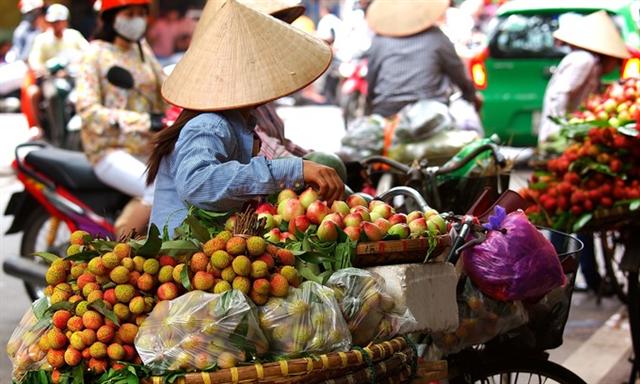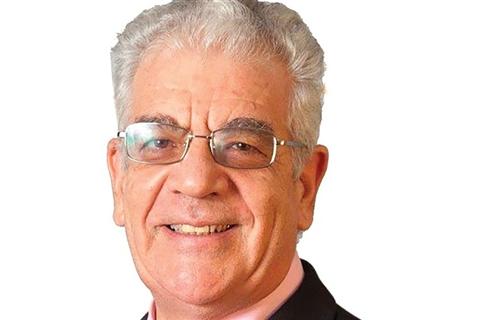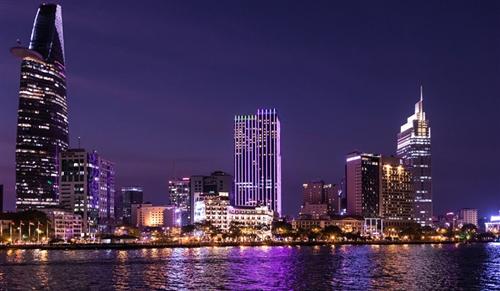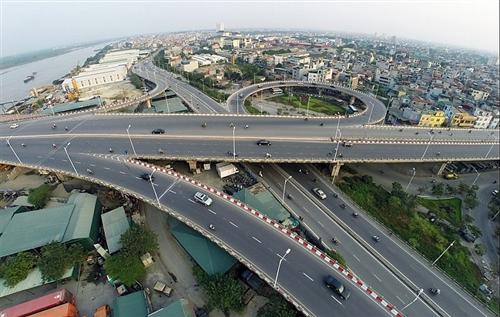Vietnam makes big jump in economic freedom index
Vietnam makes big jump in economic freedom index
Vietnam has climbed 23 places in this year’s Economic Freedom Index but continues to lag far behind its Southeast Asian counterparts.

A street vendor sells fruits in Hanoi, Vietnam. Photo by Reuters.
|
It ranked 105th out of 180 countries and territories with its overall score increasing by 3.5 points from last year to 58.8, according to the annual report recently released by the Heritage Foundation, a conservative U.S. think tank based in Washington, D.C.
Despite its substantial improvement, Vietnam’s economy was still classed as ‘mostly unfree.’
Of its neighbors, Singapore topped the list while Malaysia (24th), Thailand (43rd), Indonesia (54th), and the Philippines (70th) all scored higher.
The ranking is based on 12 quantitative and qualitative factors grouped into four broad categories, rule of law, government size, regulatory efficiency, and open markets.
Vietnam made a big move in the rankings thanks to improvements in fiscal health, government spending, property rights, trade freedom, financial freedom, and investment freedom.
Government spending amounted to 28.3 percent of the country’s GDP in the last three years, and budget deficits have averaged 4.7 percent of GDP. Public debt is equivalent to 57.5 percent of GDP.
But tax burden, judicial effectiveness, government integrity, and labor freedom are still limited, the report said.
"The Vietnamese economy has gradually been climbing the ranks of the mostly unfree since 2011. Strong GDP growth over the past five years has mirrored this improvement, driven by export-focused manufacturing and processing sectors.
"Economic freedom will be enhanced in Vietnam if the government can successfully expand economic liberalization by promoting international trade and restructuring state-owned enterprises."
From 2017-2019, Vietnam’s annual GDP growth had exceeded 6.8 percent and was among the fastest growing economies in ASEAN.
In the Asia-Pacific region, Vietnam was the 21st out of 42 economies.
The world average score is 61.6, classifying the global economy as ‘moderately free’.
Only six economies are classed as ‘free’ with scores of 80 or above. Hong Kong lost its title as the world's freest economy to Singapore for the first time since 1995, when the ranking was first released.
The world’s biggest economy, the U.S., ranked 17th, falling five places from last year, while China was in 103rd place.
This year the number of economies ranked as ‘mostly unfree’ stood at 62, while 19 were considered ‘repressed’.
























